publishers
E.B. Foote
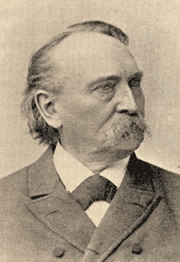
On this date in 1829, reformer Edward Bliss Foote was born in Cleveland, Ohio. He was brought up in a conforming Presbyterian household. Foote was a physician with a hand in the newspaper business, publishing the first newspaper in New Britain, Conn. Becoming a Unitarian, then an agnostic, he befriended D.M. Bennett, publisher of The Truth Seeker. Foote was the only foe of the first Comstock bill, which was introduced in the New York legislature in 1872, and passed despite his efforts.
The repressive Comstock Act was soon adopted by Congress, creating censorship of the press through postal regulations. Comstock went after his early foe in 1874, charging Foote with violating postal laws for mailing an educational pamphlet advocating the right of families to limit their size through “contraceptics.” He was fined $3,500 by Judge Benedict of the U.S. Circuit Court of the Southern District of New York in 1876.
Foote helped to organize the National Defense Association seeking repeal of the Comstock laws and aided other Comstock victims. He worked actively within medical societies and at the state legislature to oppose the legitimization of Christian scientists and faith healers. A lifelong advocate of woman’s suffrage, he sent a check of $25 to Susan B. Anthony when she was fined $100 for voting in the 1872 presidential election. He was a member of numerous freethought and professional groups. His son Edward Bond Foote also became a physician and freethinker. (D. 1906)
William Stewart Ross
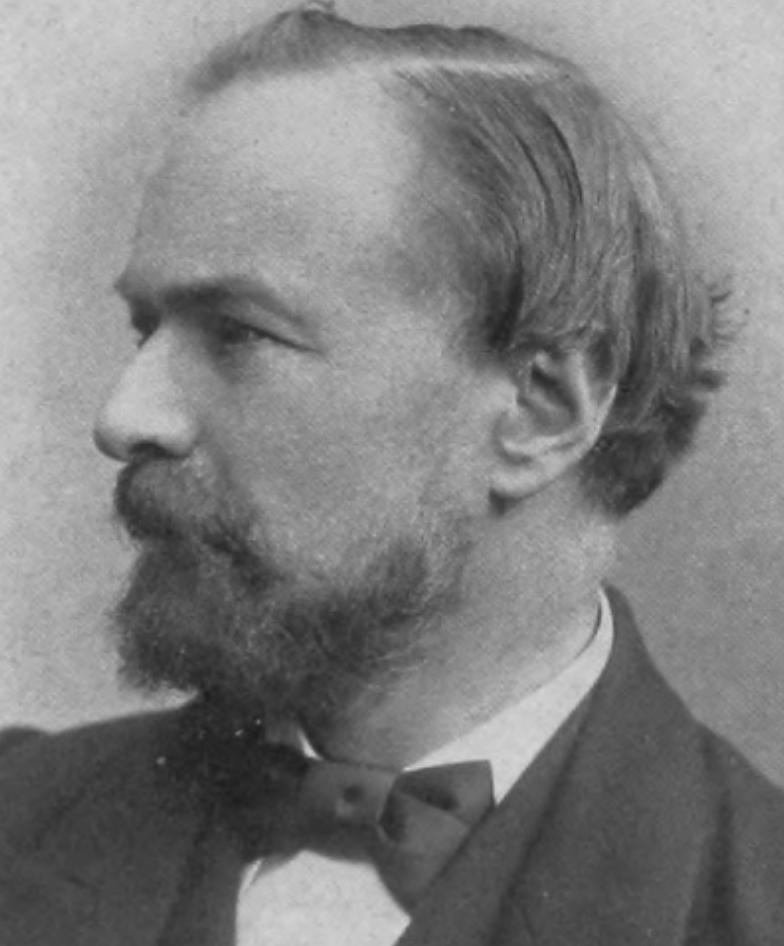
On this date in 1844, William Stewart Ross (“Saladin”) was born in Scotland. While preparing for the ministry at Glasgow University, Ross became a rationalist and gave up the church. He set up his own publishing company, W. Stewart & Co., in London. By 1880 he was co-editor of the Secular Review. Later becoming its sole editor and owner, he changed the name to the Agnostic Journal and Secular Review in 1889 and shortly thereafter to the Agnostic Journal and Eclectic Review. The last issue was published in June 1907.
Ross was not an admirer of the famous British atheist Charles Bradlaugh, and his journal and essays represented an alternative style. He wrote under the nom de plume of “Saladin” (the Muslim fighter who halted the Third Crusade). His books include God and His Book (1887) and Woman: Her Glory and Her Shame (two volumes, 1894). In 1879 he won a gold medal for writing the best poem to memorialize the unveiling of a statue of Robert Burns. Confined in his last years due to sclerosis, he died in 1906 at age 62.
“Christianity claims to have originated lunatic asylums. If I were to claim that it was I who made the moons of Jupiter and placed the belt round Saturn, I should be nearly as preposterous as Christianity is when she claims to have originated asylums for the insane. … If the preacher would stand up in his pulpit and whine, ‘My dear Christian brethren, our blessed religion did not originate lunatic asylums; but it has made up for that by making millions of lunatics,’ he would speak only the sober truth.”
— W.S. Ross, Chapter XXXII, "God and His Book" (1887)
Thomas Scott
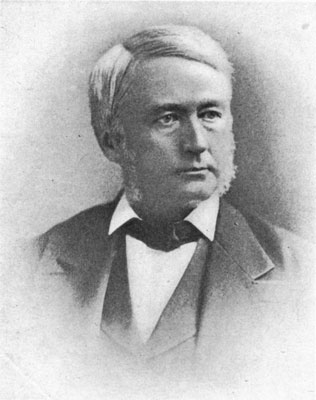
On this date in 1808, Thomas Scott was born. Educated in France as a Catholic and independently wealthy, he served as a page at the court of Charles X. Scott became a rationalist as he approached the age of 40. From 1862 to 1877, he funded and distributed more than 200 pamphlets critical of religion, which were later compiled into 16 volumes. He wrote a few himself, but mainly published well-known freethinkers, such as Moncure Daniel Conway.
Scott disseminated his pamphlets to the clergy as well as the public. From his own printing house in Ramsgate, Scott published Jeremy Bentham‘s Church of England Catechism Examined and Hume‘s Dialogues on Natural Religion. According to Joseph McCabe, The English Life of Jesus (1872), which Scott published and bears Scott’s name, was actually written, at least in part, by the Rev. Sir G.W. Cox. (A Biographical Dictionary of Modern Rationalists) McCabe wrote that Scott “rendered a most valuable service to the cause in England.” (D. 1878)
Benjamin Underwood
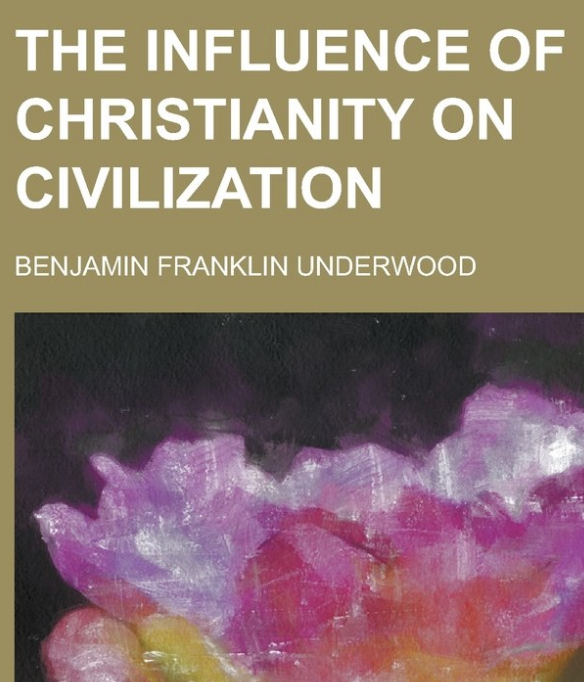
On this date in 1839, Benjamin Franklin Underwood was born in New York City, the second of seven children. Largely self-educated, he served in the Civil War and was imprisoned at Richmond after being wounded in the right leg. After being released through a prisoner exchange program, Underwood reinlisted and served through the war, receiving a commendation for bravery in action. After working as a reporter, lecturer and author, Underwood became a noted promoter of the theory of evolution.
He was appointed co-editor, with William J. Potter, of The Index in 1881, a weekly newspaper founded by a Unitarian. In 1887 he founded The Open Court in Chicago, a journal which published the writings of many freethinkers. Underwood wrote, lectured and debated as a major 19th-century advocate for the freethought movement. His books include The Influence of Christianity on Civilization (1871) and The Crimes and Cruelties of Christianity (1877). Underwood chaired the Congress of Evolution at the World’s Fair in Chicago in 1893. He was a supporter of feminism. His wife, Sara Underwood, published Heroines of Freethought in 1876. (D. 1914)
“There is no argument worthy of the name that will justify the union of the Christian religion with the State. Every consideration of justice and equality forbids it. Every argument in favor of free Republican institutions is equally an argument in favor of a complete divorce of the State from the Church."
— Underwood, "The Practical Separation of Church & State," an address to the 1876 Centennial Congress of Liberals
Josiah P. Mendum
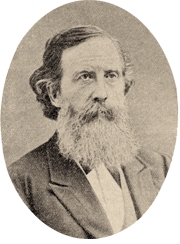
On this date in 1811, Josiah P. Mendum was born in Kennebunk, Maine. In 1844, Mendum took over as editor and proprietor of the Boston Investigator, the first U.S. rationalist news publication, after Abner Kneeland retired. Under Mendum’s businesslike management, the newspaper became prosperous and influential. Mendum also republished books by Voltaire, D’Holbach, Volney and Paine. He lobbied hard for the building of a hall to memorialize Thomas Paine in 1870. By 1874, the Paine Memorial Hall was opened in Boston.
Mendum spent 40 years as rationalist advocate. He and Horace Seaver as co-editors were succeeded by Mendum’s son, Ernest Mendum, and by Lemuel K. Washburn. When J.P. Mendum died, a memorial was fittingly held at Paine Hall. Mendum was lauded for helping to turn “the strait-laced Boston of sixty years ago [into] the enlightened Hub of today … to ‘destroy bigotry and uproot the evils of superstition.’ ” (Boston Globe, Feb. 3, 1891) (D. 1891)
E. Haldeman-Julius
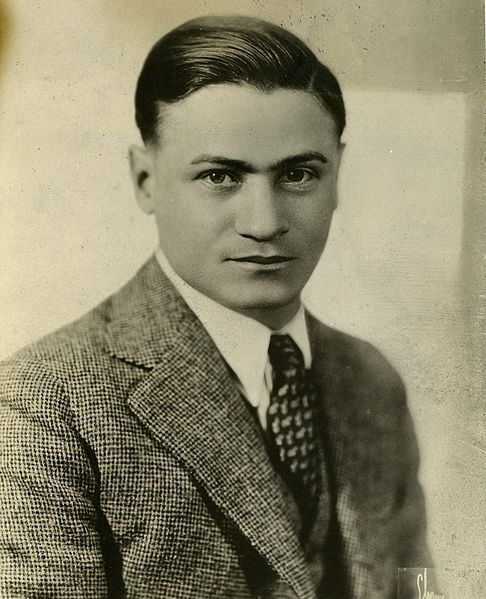
On this date in 1889, Emanuel Julius, later known as E. Haldeman-Julius, was born in Philadelphia, the son of Russian-Jewish immigrants. An early socialist, he educated himself at party headquarters, reading tracts on freethought, philosophy and economics. In 1906 he left home for good, heading for New York City. His self-education continued when a sympathetic librarian at a girls’ school in Tarrytown, where he had found work, introduced him to visiting dignitary Mark Twain. Emanuel’s first attributed article, “Mark Twain: Radical,” was published in a socialist periodical in 1910.
He worked for a variety of socialist newspapers, including New York Evening Call, Coming Nation, published in Girard, Kansas, the Milwaukee Leader, and the Chicago Evening World. He became editor and briefly acquired the Western Comrade, published in Los Angeles. He met his wife-to-be, Marcet Haldeman, an actress and heiress, in New York City and followed her home to Girard, Kansas. There he worked for Appeal to Reason, the largest socialist weekly in the country. They married in 1916 and legally combined their surnames at the urging of Marcet’s aunt, Jane Addams of Hull House fame. They had two daughters and a son. Haldeman-Julius, with his wife’s help, purchased Appeal to Reason and its publishing plant in 1918.
By the following year he had initiated his People’s Pocket Series — inexpensive paperbacks later renamed Little Blue Books, to match their appearance. Haldeman-Julius reprinted classics, socialist, radical and freethought literature. Most of the paperbacks contained a bonus page of his trademark nonreligious views. He also published a variety of periodicals, including American Freeman. In 1925 he launched the Big Blue Books series, publishing such notable authors as Bertrand Russell and Joseph McCabe.
Haldeman-Julius revolutionized the publishing industry, bringing avant-garde authors to the masses. His radical politics, including attacks against President Herbert Hoover, brought him to the attention of the FBI, which he in turn pilloried in print. He further alienated the status quo by publishing McCabe’s allegations of Vatican collaboration with the Axis during World War II. J. Edgar Hoover’s 20-year investigation of the publisher resulted in a verdict of tax evasion in 1951. Haldeman-Julius appealed the verdict but was found drowned in his swimming pool later that year. (D. 1951)
"It is natural that people should differ most, and most violently, about the unknowable. … There is all the room in the world for divergence of opinion about something that, so far as we can realistically perceive, does not exist."
— Haldeman-Julius, "The Unknowable," The Militant Atheist
Charles Southwell
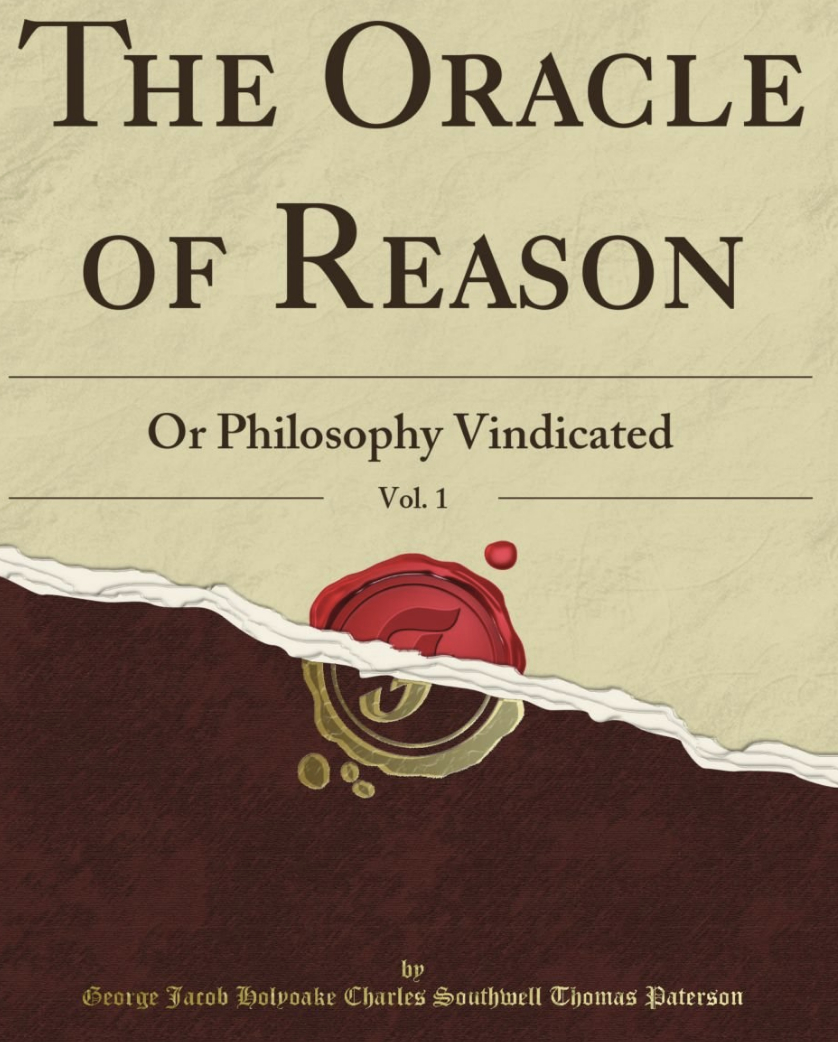
On this date in 1814, Charles Southwell was born in London. Southwell became an atheist as a teenager after reading Sermons by the Calvinist Timothy Dwight. After serving in the British Foreign Legion in Spain during the Carlist War, Southwell became a popular and prolific freethought lecturer in London. He opened a radical bookstore and helped found the atheist periodical The Oracle of Reason (1841-43), which often published fiercely anti-Christian material. It was among the first avowedly atheist publications in England. Southwell and several later editors were imprisoned for blasphemy.
“The … BIBLE has been for ages the idol of all sorts of blockheads, the glory of knaves, and the disgust of wise men. It is a history of lust, sodomies, wholesale slaughtering, and horrible depravity; that the vilest parts of all other histories, collected in one monstrous book, could scarcely parallel,” Southwell wrote in The Oracle of Reason. (Politics 1790-1900, Edward Royle, 1976) Southwell boldly asserted in 1842 that “The world could not have been designed by one being, infinitely wise, infinitely good, and infinitely powerful.”
Southwell lived in New Zealand from 1856 until his death in 1860, where he was influential to the freethought movement there. The New Zealand Association of Rationalists and Humanists named its Charles Southwell Award after him. Southwell wrote An Apology for Atheism (1846), Superstition Unveiled (1854) and The Confessions of a Freethinker and founded the newspapers The Investigator, The Lancashire Beacon and The Auckland Examiner. (D. 1860)
"Superstition is the tyranny of tyrannies, and its priests the tyrants of tyrants."
— Southwell, "The Oracle of Reason" (1842)
Lyle Stuart
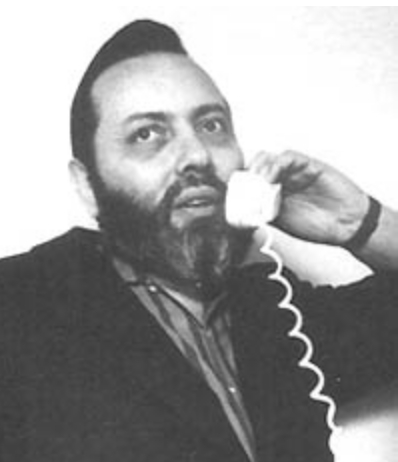
On this date in 1922, book publisher Lyle Stuart (né Lionel Simon) was born in New York City. When Stuart was 6, his father, a salesman, committed suicide. After dropping out of high school, he joined the Merchant Marine and changed his name in response to the anti-Semitism he encountered. Forging a career in journalism in the 1940s and ’50s, Stuart gained moderate notoriety after a bitter dispute with columnist Walter Winchell, a fight that escalated to a libel suit that was decided in Stuart’s favor. With the money he won he started Lyle Stuart Inc., which later became Barricade Books.
As a publisher in Fort Lee, New Jersey, Stuart became a millionaire by selling titles like Naked Came the Stranger (1969), The Sensuous Woman (1969), The Anarchist Cookbook (1970) and Jackie Oh! (1978). A 1997 libel suit forced Barricade Books into bankruptcy but the decision was later reversed.
Throughout his life he maintained his muckraking, anti-establishment roots. He published L. Ron Hubbard: Messiah or Madman? in 1987, a biography of the founder of Scientology. As reported by an open letter he wrote to The New York Times, Stuart used all of the profits to “help fight this cult and the other cult exploiters of the innocent, the naive and the idealistic.” His decision in 1997 to republish the racist novel The Turner Diaries was very controversial. In the introduction, he wrote that he strongly opposed the book’s views but saw it as a First Amendment issue.
Barricade published Warren Allen Smith’s 1,237-page compendium Who’s Who in Hell: A Handbook and International Directory for Humanists, Freethinkers, Naturalists, Rationalists and Non-Theists in 2000.
Stuart married at age 22 to Mary Louise Stuart, who died of cancer in 1969. In 1982 he married his secretary Carole Livingston Stuart, with whom he lived until his death at age 83. (D. 2006)
"Do I believe in any god or gods or supernatural destiny? No. I'm an atheist from way back. If you believe there is some god or gods watching over you, more power to you and your imagination. From Thomas Edison to Albert Einstein, the most knowledgeable scientists of our time — and those who best understood how the universe works — discarded the idea of a personal deity."
— Stuart, from his book "Casino Gambling for the Winner" (1978)
James Watson
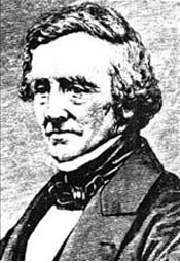
On this date in 1799, James Watson, who became a much-imprisoned English freethought publisher, was born in Yorkshire. As a young worker in Leeds, he joined a radical reading club and became a freethinker. At age 23, Watson moved to London to assist publisher Richard Carlile at his shop, taking over when Carlile was imprisoned in 1822. Carlile had expressly opened the shop to publish and sell periodicals that would challenge “Six Acts,” a suppressive law passed in 1819.
Watson was arrested in 1823 for selling Elihu Palmer’s Principles of Nature and was sentenced to a year at Cold Bath Fields prison for blasphemy. He took advantage of his confinement to read rationalist writers. Released in April 1824, he learned the skills of the printing trade directly from Carlile and also worked for another radical publisher, Julian Hibbert. In 1827, Watson joined the Owenites (see Robert Owen), and became an agent for Owens’ Cooperative Trading Association.
In 1830 Watson opened his own publishing house, specializing in handprinted and bound-volume classics by freethinkers. In 1831 he organized a feast to counter a government-ordered fast. In 1832 he began publishing the Working Man’s Friend, an unstamped newspaper (stamp laws had a chilling effect on publishers of newspapers and pamphlets), for which he was sent to prison for six months in 1833. For selling the Poor Man’s Guardian, another newspaper sympathetic to workers, Watson was imprisoned for six months in 1834-35. In the 1840s he campaigned against blasphemy laws and, with G.J. Holyoake, published the anti-Christian journal The Reasoner. (D. 1874)
"I am happy that I can aid those admirable men, both living and dead, who by their pens or their tongues have aided the great cause of human liberty and universal happiness."
— Watson, "A Voice from the Bastille" (Feb. 23, 1833)
Edward Truelove
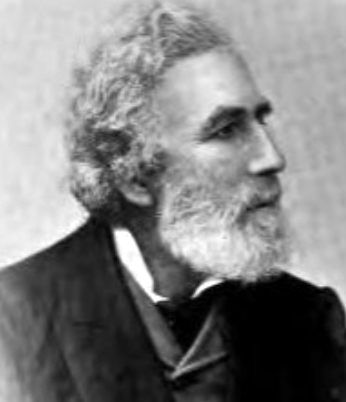
On this date in 1809, Edward Truelove was born In England. A follower of Robert Owen and his son, Truelove worked at the Owenite utopian community of New Harmony, Indiana, for a year. After returning to London in 1847, Truelove opened his own bookstore in the Strand in 1852 and later opened another shop in Holborn. He published freethought and rationalist works. In 1858, after he published Tyrannicide by W.E. Adams, Truelove was charged with blasphemy, but the prosecution was withdrawn.
Truelove served four months in prison in 1878 for the publication of Robert Dale Owen‘s Moral Physiology: Is It Justifiable? The book addressed population and birth control. Truelove was married to a suffragist and had three children. (D. 1899)
“He believed, with Madame de Stael, the search for truth is the noblest pursuit of man and the publication of it a duty.”
— Posthumous tribute to Truelove by George Holyoake (1899)
Kerry Packer
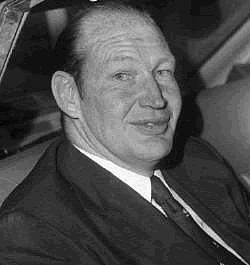
On this date in 1937, business tycoon Kerry Francis Bullmore Packer was born in Sydney, Australia. His father was the wealthy Sir Frank Packer, an influential figure in publishing and broadcasting. After his father’s death in 1974, Packer inherited his media holdings and became head of the Australian Consolidated Press (1974–2005), chairman of Publishing and Broadcasting Limited and owner of Channel Nine.
In 1977 he founded World Series Cricket, an independent cricket competition televised on Channel Nine, which provided higher salaries for players and changed the way cricket was played for television. He married Roslyn Redman Weedon in 1963 and they had two children, James and Gretel.
In 1990, during the Australian Open polo championship, he suffered the first of several heart attacks and was left clinically dead for six minutes before being revived. “Believe me, there is nothing on the other side. I’ve been there,” Packer said of his experience (quoted in a BBC News story on Dec. 27, 2005). He then paid to furnish every ambulance in New South Wales with portable defibrillators, which soon became known as Packerwhackers.
He died of kidney failure nine days after his 68th birthday. He had instructed his doctors not to prolong his life with dialysis and that he wanted to “die with dignity.” His private funeral service was held at his country estate. (D. 2005)
"The good news is there's no devil. The bad news is there's no heaven. There's nothing."
— Packer, speaking about the time he spent clinically dead, quoted in his Reuters obituary (Dec. 27, 2005)
D.M. Bennett
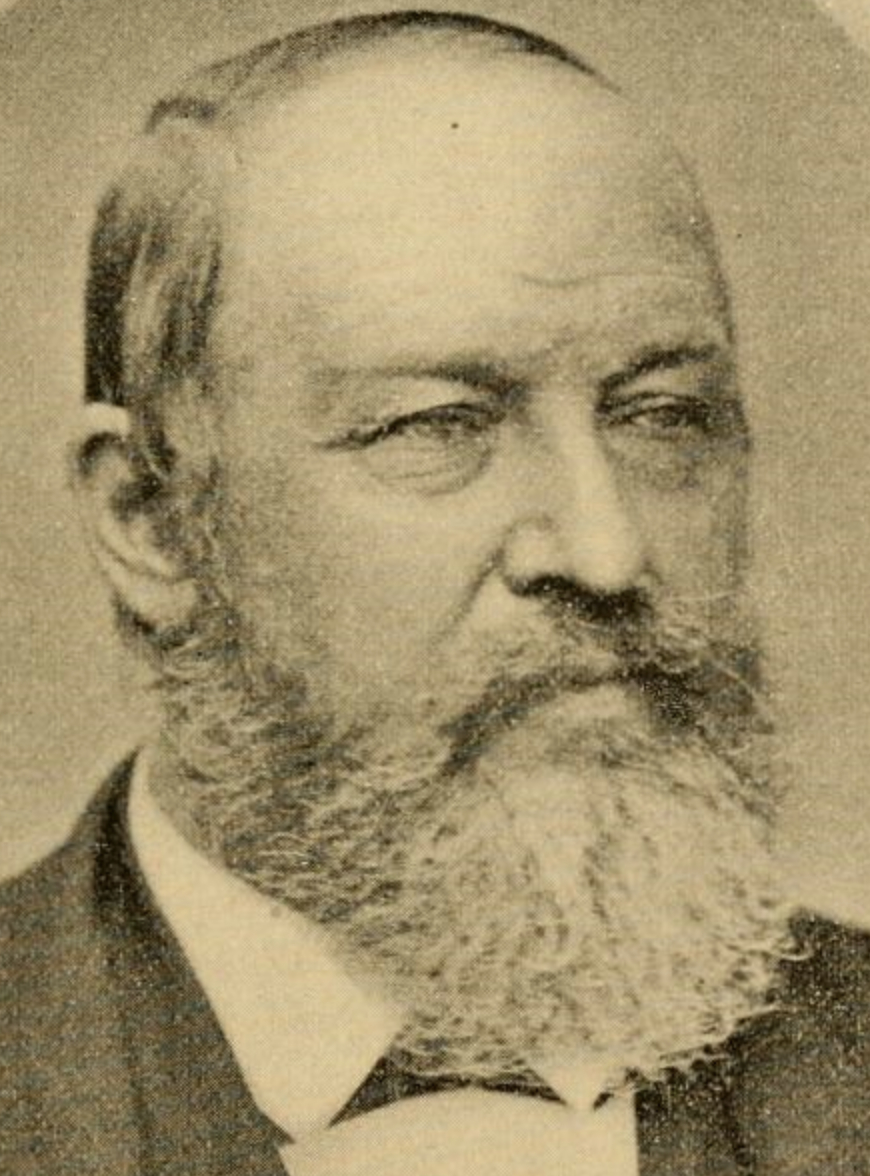
On this date in 1818, freethought publisher DeRobigne Mortimer Bennett was born two months prematurely in Springfield, New York. He had a lifelong limp. Bennett worked in a printing office and joined the New London Shaker community at 15. By the age of 27 he was working as the community’s physician. He shook off the celibate Shakerism in 1846 when he and Mary Wicks, also a Shaker, fell in love and eloped.
In 1873 Bennett started The Truth Seeker in Paris, Illinois. The paper began as a way to reply to a clergyman whose letters were published by local papers which had suppressed Bennett’s responses. He took his paper to New York City the next year, where it was published at 335 Broadway.
He deliberately published and mailed “An Open Letter to Jesus Christ” (a 36-page pamphlet) and a scientific work on marsupial propagation to challenge the Comstock Act, which allowed postal authorities to intercept “blasphemous” or indecent mail. He was arrested in November 1877, was defended by Robert Ingersoll and charges were dismissed. In August 1878 he was arrested for selling a copy of E.H. Heywood’s anti-marriage pamphlet “Cupid’s Yokes: The Binding Forces of Conjugal Life,” for which he served a year in prison, the case becoming an international cause celebre. Some 200,000 people signed a petition for his release.
His productivity can be gauged by his schedule between 1873 and 1882. During those years he spent a year in prison, went for a year-long world voyage, spent a season in Europe and wrote The World’s Sages, Thinkers and Reformers (1,100 pages). He followed that book up with The Champions of the Church (even longer), The Gods and Religions of Ancient and Modern Times (two volumes of 1,000 pages each), An Infidel Abroad (800 pages), A Truth Seeker Around the World (four volumes of 750 pages each) and “unnumbered columns of editorial matter and articles for The Truth Seeker,” according to his profile in Four Hundred Years of Freethought (ed. S.P. Putnam, 1894).
Bennett built The Truth Seeker into a major publishing house of freethought and scientific titles. He died at 64. Freethinkers of America erected a monument over his grave. (D. 1882)
“Was the star which was said to point out to the wise men who sought you in the stable in which you was born, a real star like others, millions of miles away, and which are immense bodies of matter, or was it a little star gotten up especially for the occasion and which moved near the surface of the earth?”
— Bennett, "An Open Letter to Jesus Christ," The Truth Seeker (November 1875)
